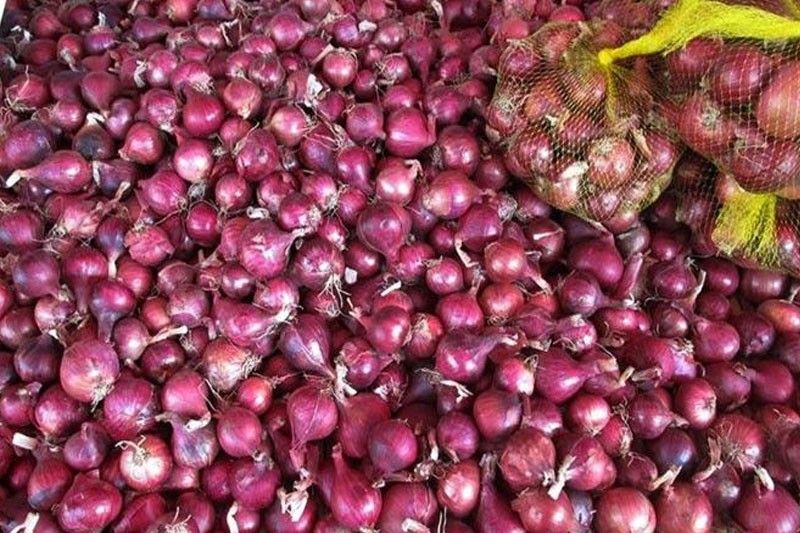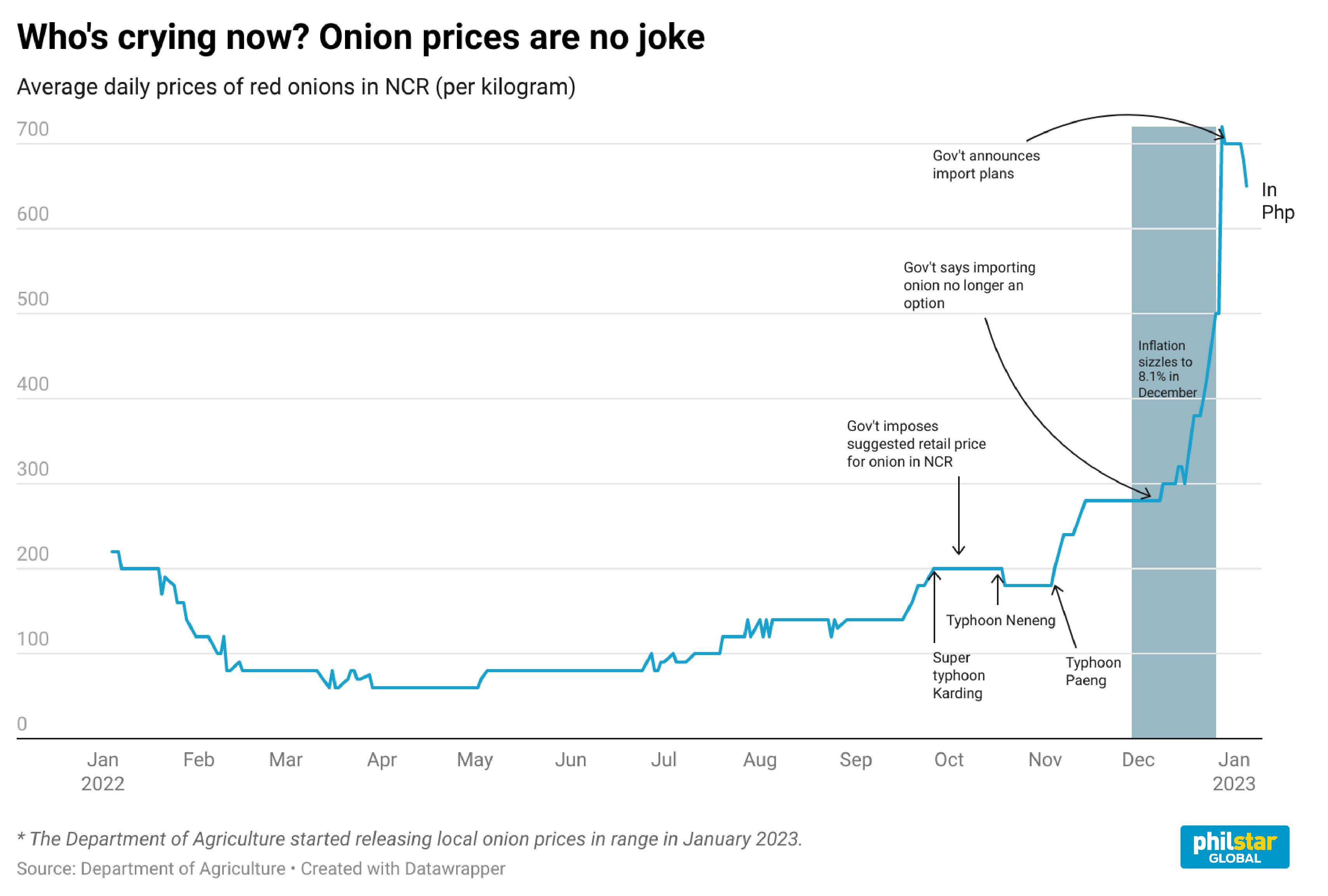Import plan to hurt local onion farmers — analysts

MANILA, Philippines — A plan devised by the Marcos Jr. administration to import red onions to soothe a brutally-high inflation and growing consumer woes could end up hurting onion farmers in the Philippines, according to analysts.
The Department of Agriculture announced on Monday its plan to import 22,000 metric tons of onion as prices zoomed in the past two months.
Sonny Africa, executive director of nonprofit IBON Foundation, expects the import plan to collide with onion harvest season.
“The proposal to import onions will make farmgate prices fall at the expense of local farmers starting to harvest in January and February, collapsing their incomes further, while the impact on retail prices is uncertain and depends on how these will be sold,” he said in a Viber message.
Onion prices have become a trending topic on social media in December, as a kilogram of the produce in now costs as much as P700 in Metro Manila.

“Retail prices will decline the most if the imported onions don't go through traders allegedly engaged in price manipulation,” Africa added.
Data from the DA showed that a kilo of red onion is almost always cheaper compared to local produce. A kilo of locally-produced red onion cost P220 in January 2022, but imported ones cost P200.
Leonardo Lanzona, an economist at Ateneo de Manila University, said the plan will only benefit consumers—at the expense of farmers’ livelihoods.
“On the whole, the importation of onions will be beneficial to consumers but will be harmful to farmers’ prices of onions are expected to decrease, but this will only be temporary if no action is done to increase its local production,” he said.
Africa lamented that relying on imports would result in onion farmers grappling with lower farmgate prices. This means that they could even be selling their onions at a loss if the import proposal pushes through.
For Lanzona, importing onions has no assurances.
“Furthermore, while farmgate prices will decline in the process, there is no guarantee that the retail prices will fall at the same rate as distribution and other transaction costs can remain high,” Lanzona said. “In effect, importation is not necessarily going to solve this issue.”
Onions are a staple in Filipino cuisine. To curb the supply problem, which has worsened inflation woes, Africa offered solutions.
“The best solution for farmers and consumers is to go after unscrupulous traders and immediately stop their hoarding and price manipulation. This has to be done while also already giving greater govt production and trading support to local onion farmers,” he added.
Africa also suggested improving farmers’ productivity, which economists opine could be a solution to manage price inflation in the Philippines.
- Latest
- Trending




























